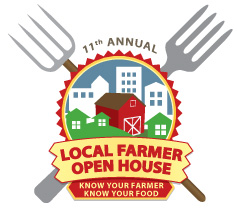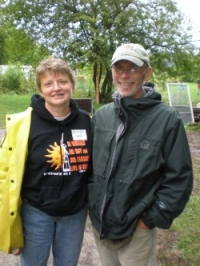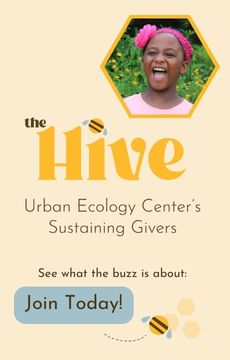Their 17-week CSA program begins in early July and ends in late October. Their medium size share is just right for single people, couples and busy families. A weekly newsletter includes recipes that match the contents of the box. They have 17 years of experience growing organic, nutritious produce on biologically alive soil.
“Memory is a notoriously undependable partner. It is often faulty and like our dreams it is often scattered images woven into a narrative. Yet, as we move through our days, it is the past that guides us, focuses us and helps us make decision. The past is, as Shakespeare noted, prologue to our lives. It is the origin of our stories, of ourselves. Here is our story, based as they say, on real life,” said Dave and Sandy.
“You see when we started farming the most important thing to us was that we make a living doing it. Yes, we knew we wanted to grow without chemical pesticides or fertilizer — that is organically — but we did not yet achieve nor understood regenerative sustainable farming practices. We had given up good jobs because we felt a sort of calling to this profession. But our goal was to make a living doing it; our success was measured by the bottom line. Good food was the result of our efforts. It was, however, in short, a widget,” they said.
Dave and Sandy have observed that our culture, for the most part, has deemed agriculture as an industry apart from us for the last generation or two. We know what it means to grow food using measured doses of unnatural things that we ourselves have created. This form of artificial intelligence is what has guided farmers, even organic farmers, for some time.
Now food as a widget can be and is too easily reduced to an item in a profit-loss calculation. When food is a widget it forces short-term thinking about ways to improve profitably through mechanized approaches to make the growing, the harvesting and the distribution more efficient. “We prepared the soil, the soil prepared the food; we gave the food to a person; the person gave us money. But that was what we did,” they said in retrospect.
“Gradually, we began to see food not as a thing but as a relationship. We saw food first as something people need to be healthy and happy and then we saw food as relationship in the increasingly knowable but still mysterious web of interactions between the farmers, the soil and nature. Ansel Adams once had such a realization photographing in the mountains. In a letter to a friend on the proper role he said: ‘Art is both the taking and giving of beauty; the turning out to the light of the inner folds of the awareness of the spirit. It is a recreation on another plane of the realities of the world, the tragic and wonderful realities of earth and men and of all the interrelations of these.’ We see that art offers that relationship to people and now we know food does as well. We share something both necessary and intimate with people who also share in that relationship with us,” said Dave and Sandy.
“We realized that the decision that we made to make farming our profession was absolutely the right decision. And we have become even happier, and more profitable in all its meanings, as we have come to respect and relish the relationship that food creates."
“We farm," they continued, "but the farming we do reaches well beyond the bounds of economic reckoning, as we now know all good farming should. The love of a good farmer toward his farm is too big to push through the calculator to the bottom line. The worth of the farmer is cheapened if all he has to show for his efforts is profit. And for the good farmer, we have discovered, farming is as much art as it is science for it is as much about transformation as it is about knowledge and skills. Our success now is measured in many ways."
This blog post was written by Theresa Lins. Theresa is a Milwaukee-based writer and Urban Ecology Center “groupie”. She has been active in promoting the Center and its programs for over 14 years. Other than eating farm-fresh food, her favorite thing is to write about it and the people who produce it.
 You can meet these farmers and many others at the Local Farmer Open House on March 9th at our Riverside Park branch. Meet and sign up with farmers, learn how you can join a CSA farm (purchase a share of the harvest) and get a box of fresh produce each week during the season. Join us for this free event!
You can meet these farmers and many others at the Local Farmer Open House on March 9th at our Riverside Park branch. Meet and sign up with farmers, learn how you can join a CSA farm (purchase a share of the harvest) and get a box of fresh produce each week during the season. Join us for this free event!





